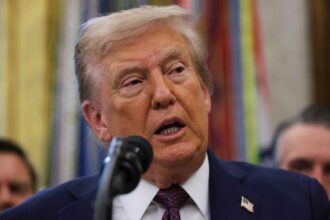On Thursday, the Supreme Court unanimously rejected a multibillion-dollar case filed by Mexico. The case, which sought to hold U.S. firearms makers liable for gun violence committed by Mexican cartels, was dismissed because it was barred by federal law.
Justice Elena Kagan, who delivered the court’s ruling, stated that the litigation did not fall under the PLCAA’s exclusions. The PLCAA, enacted in 2005, substantially shields gun makers and dealers from accountability when crimes are committed with their goods.
The crux of Mexico’s argument hinged on an exception in the PLCAA, which allows lawsuits if companies “knowingly violated” gun laws and caused harm as a result. However, Justice Kagan clarified that applying this broad exception to Mexico’s claim would essentially undermine the entire purpose of the law.
“But that exception, if Mexico’s suit fell within it, would swallow most of the rule,” Kagan wrote. “We doubt Congress intended to draft such a capacious way out of PLCAA, and in fact it did not.”
Mexico originally filed the lawsuit in 2021 against seven gun manufacturers and one distributor, accusing them of aiding violence in Mexico by failing to prevent the flow of firearms to criminal organizations. The defendants included major gun companies like Smith & Wesson and Glock.
Although most of the companies were dismissed from the suit earlier, two remained as the case reached the nation’s highest court. Mexico was seeking $10 billion in damages and hoped to enforce stricter regulations on gun marketing and distribution practices through a court order.
The decision drew significant attention from advocacy groups and lawmakers on both sides of the gun debate. Gun rights supporters, including the National Rifle Association (NRA), the Firearms Policy Coalition, House Speaker Mike Johnson (R-La.), 26 Republican state attorneys general, and the U.S. Chamber of Commerce, supported the gun companies.
Meanwhile, Mexico had the backing of prominent gun control groups such as Everytown for Gun Safety and March for Our Lives. The lawsuit also received support from around 40 Democratic lawmakers and attorneys general from Washington, D.C., and 16 other states.








